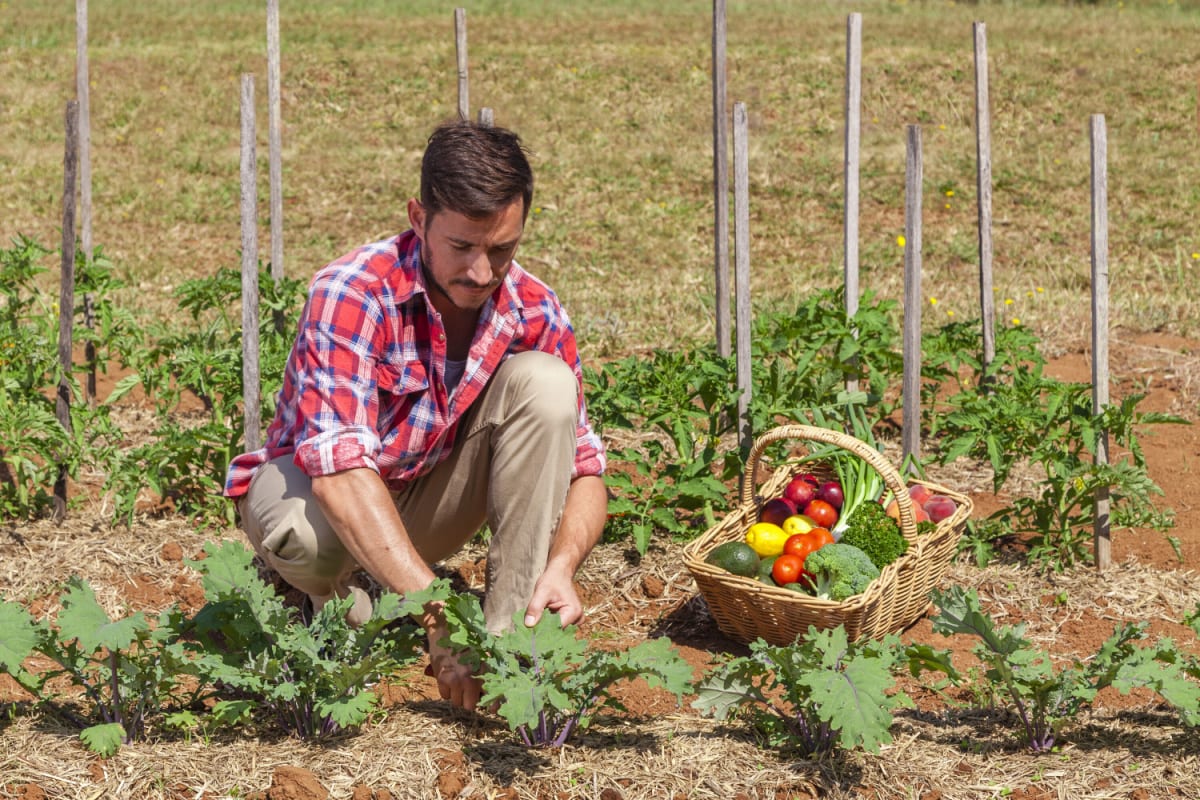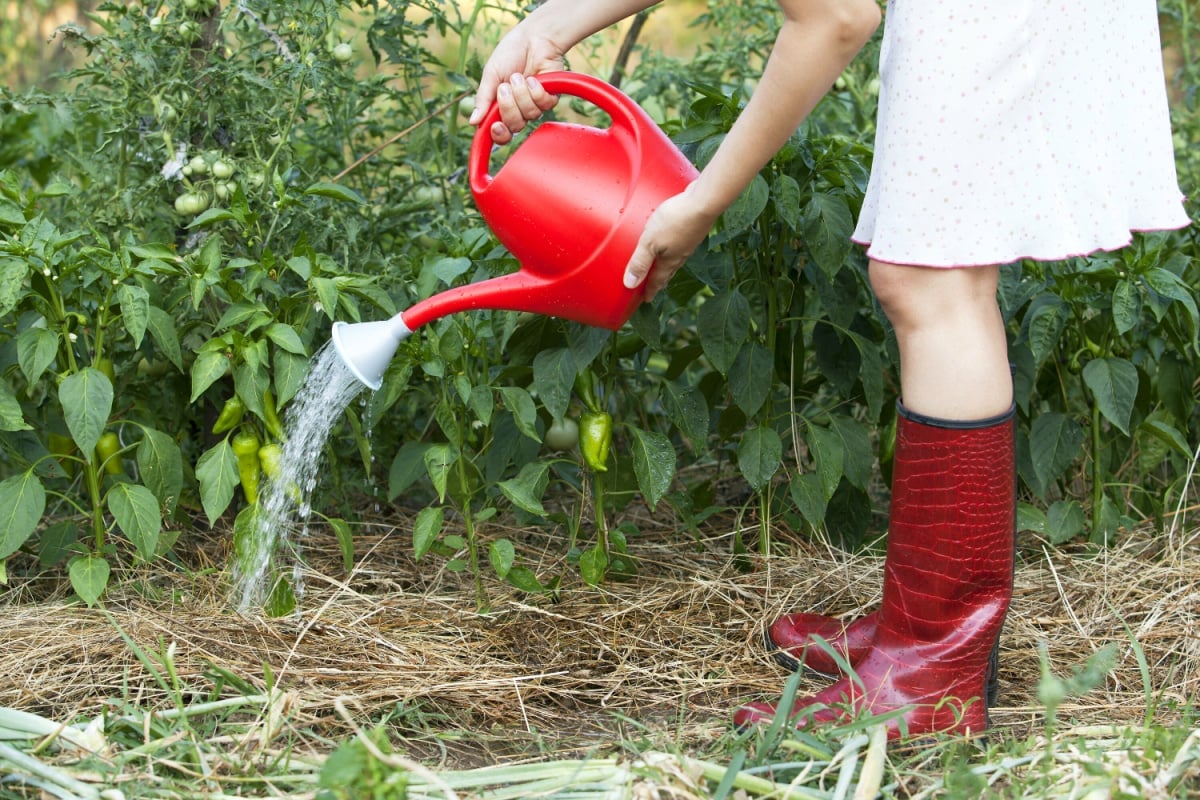How To Start Organic Farming
How to Start Organic Farming?
It’s no secret that organic farming is on the rise. People are increasingly interested in eating organic, and many farmers are converting to organic farming to stay ahead of the curve. Learn how to start organic farming today!
Conversion to organic farming can seem daunting, but it can be done relatively easily with careful planning and execution.
When making the switch, there are many things to consider, such as what crops you will grow, how you will deal with pests and diseases, and how you will market your product.
If you’re a conventional farmer thinking of converting to organic farming, this article is for you! This article will discuss the step-by-step process of switching from conventional to organic farming.
Keep on reading if you’re ready to make the jump!
Benefits of Organic Farming:
Organic farming is a way of producing food in the most natural and environmentally friendly way possible. It has many benefits for both farmers and consumers.
For farmers, converting to organic farming is a great way to make more money, increase self-sufficiency and make the soil healthier. The consumers benefit because they get healthy food that tastes better, is more natural, and is produced sustainably.
Therefore, many farmers are converting to organic farming due to these many benefits.
Consumers are also becoming more aware of the importance and benefits of organic produce. Many want to buy food that is healthy, natural, and not treated with chemicals and additives.
How to Convert to Prganic Farming Methods?
Conversion to organic farming can seem like an overwhelming task; however, it is relatively easy to do with proper planning.
Before converting your conventional farm to an organic one, consider certain things, such as what you will grow on your farm and what approaches you will take with pests and diseases.
It’s a good idea to start converting your farm slowly. You probably won’t make a complete conversion all at once, but you can make it a gradual process over time.
There are various methods that can be used when converting to organic farming. These include crop rotation, beneficial insects, biological controls for pests, cover cropping, no-till farming, composting, mulching, and many more.
1 – Practice Crop Rotation
Crop rotation is an important practice in converting to organic farming. It has many benefits, including increasing soil health and preventing pests and diseases.
Plants need a lot of nutrients to grow and stay healthy. Growing the same type of plant year after year can deplete these nutrients from the soil, making the soil less healthy. This can lead to pests and diseases developing on these plants.
Crop rotation is the practice of changing what type of plant you grow from year to year. By doing this, you can keep your plants healthy and the soil nutritious.
You will need to decide what crops you will rotate to avoid depleting the soil’s nutrients. Of course, not all crops can be grown every year. Some crops that can be rotated include legumes, corn, vegetables, grasses, and flowers. There are many others to consider as well!
2 – Bring Beneficial Insects to Your Farm
Another popular converting method is to bring beneficial insects into your garden. The term “beneficial insect” refers to any insect that benefits the plant or soil, such as a pollinator or a predator of pests.
These beneficial insects can be brought into your garden by planting cover crops of clover, alfalfa, buckwheat, and daikon radish. These crops attract certain insects while growing and have flowers that provide a food source for bees and other pollinators.
You may also want to consider planting some flowers that are beneficial for your crops. These can be yarrow, cosmos, dill, thistle, and alfalfa.
3 – Apply Biological Controls for Pests
Using biological methods of pest control is another great converting method. Biological controls are substances that help keep pests under control without resorting to chemical pesticides.
There are many ways to apply biological controls. One of the most popular converting methods is to use beneficial nematodes, which are parasites that attack harmful soil-dwelling insects.
Another method is attracting and encouraging natural predators of the pest insects, such as birds and lizards. This can be done by planting flowers and fruit trees so the predators have a food source.
You can also use botanical insecticides, which are derived from plants known to repel certain types of insects.
4 – Don’t Forget Cover Cropping
If you are converting to organic farming, you can’t forget about cover cropping. Cover crops are grown for multiple purposes, but primarily to improve the soil.
In conventional farming, most farmers use chemical fertilizers to enrich the soil. However, these fertilizers only provide plants with a few nutrients.
The soil needs various nutrients to stay healthy, and cover crops provide these nutrients. They also improve the quality of the soil, which can reduce erosion.
You should also plan your cover crop carefully. Legumes fix nitrogen into the soil, while grasses and other plants can provide erosion protection.
5 – Use No-Till Farming
No-till methods allow you to plant seeds without disturbing the soil. In comparison, conventional farming requires plowing before planting and often uses a variety of herbicides and pesticides during the process.
No-till farming helps to retain moisture and prevents the loss of topsoil. It also reduces the need for machinery and is very beneficial in converting to organic and sustainable farming.
6 – Composting Is Necessary
When converting to organic farming, composting is necessary. This is how organic materials and food scraps are broken down into nutrient-rich fertilizers.
Composting adds nutrients back into your soil while converting waste into a useful product. It also helps control weeds and some pests that can damage your crops.
You can make compost from organic materials, such as kitchen scraps, grass clippings, manure, and leaves. Mix these ingredients well to encourage decomposition, and add water if necessary.
After this mixture has been left to decompose for a few weeks, it will break down into a dark, nutrient-rich fertilizer that you can use to replace chemical fertilizers.
7 – Mulching Is Always Helpful
Conversion to organic farming requires converting to sustainable, organic practices. This means converting certain conventional methods.
For example, mulching can be used in place of using herbicides. It also helps retain moisture in the soil, encourages natural predators, and controls weeds.
A good mulch will cover the ground and prevent weed growth while also providing nutrients to the soil.
You can use organic materials for this purpose, such as straw, grass clippings, and leaves. Simply covering the ground with a layer of these materials will help prevent weed growth while also providing nutrients to the soil.
What Are the Challenges Involved in Conversion to Organic Farming?
While converting to organic and sustainable farming has many benefits, it can also be challenging.
One of the most difficult aspects of converting is learning to rely on natural systems instead of chemical fertilizers. You may find that converting takes longer than anticipated, especially in the beginning stages.
Another challenging aspect of converting is the time and financial investment required. While it helps reduce costs in the long term, converting can cost a lot of money upfront.
Converting to organic farming can also be very time-consuming, especially if converting large land areas.
However, converting to organic farming is beneficial for everyone involved. If you plan carefully and use the advice in this article, conversion to organic farming should be a smooth process.
Why Should Farmers Switch to Organic Farming Anyway?
While converting to organic farming can be challenging, the benefits are worth it.
For example, organic practices help protect the environment and reduce pollution. It also protects the soil and provides healthier produce.
Going organic will benefit you in the short term and long term. It can reduce costs, prevent damage to your equipment, and help to reduce labor.
Organic crops are more resistant to pests, which means converting could save you money in the long term because organic produce requires less to no pesticides and herbicides.
Conversion to organic farming is beneficial for everyone involved – your soil, the environment, and you. That’s why you should seriously consider converting to organic practices.
How Can You Market Your Organic Produce?
If converting to organic farming is your plan, you might want to consider how you’re going to market and sell your products.
There are a few ways to market your organic produce. You can sell it at local farmer’s markets, you can sell it online, or you can even sell it in grocery stores.
Organic products sell for a premium price at grocery stores, so it should not be difficult to find a market for your product.
Does Organic Farming Hold Any Future?
It certainly does. More and more people are becoming interested in organic farming every day, and the demand for organic produce is only growing.
Organic farming is a much more sustainable way of farming, and it results in fewer pollutants being released into the environment.
It’s also healthier for both humans and animals. So we can expect to see a lot more organic farming in the years ahead.
Conclusion on How To Start Organic Farming
It’s not always easy converting from conventional farming to organic, but the benefits of converting are worth it, and conversion can be a lot easier than you could imagine.
If you plan carefully, conversion to organic farming can be a smooth process that pays off in the end. It’s not only good for the environment, but it’s also good for your wallet. So stop thinking about converting and do it!
More About Gardening:
- How To Grow Dragon Fruit?
- How To Grow Garlic?
- Grow Green Onion
- Dark Colored Vegetables For The Garden
- Winterizing Raised Bed Garden
If you enjoyed this post about How To Start Organic Farming and would love to see more, join me on Youtube, Instagram, Facebook & Twitter!
Get discounted copies of my cookbook here.
Fortunately, because of the ads on our website, readers and subscribers of Healthier Steps are sponsoring many underprivileged families.









